Sumpter
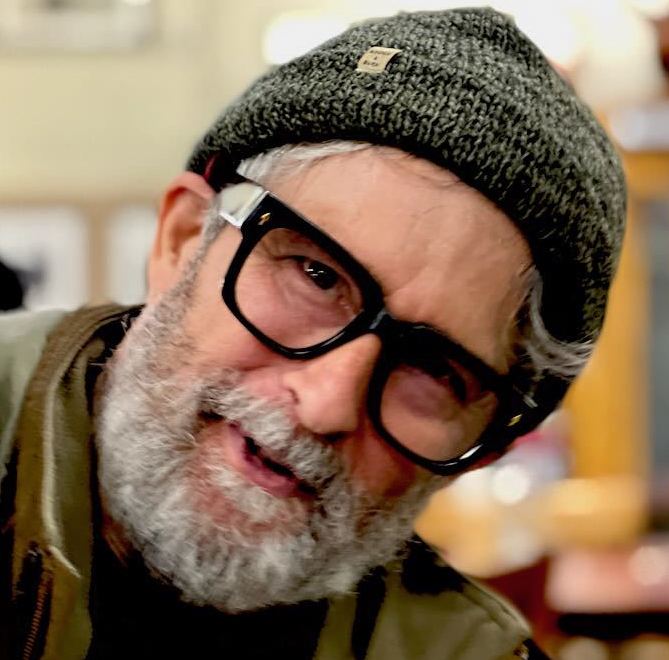
Download the article (pdf) Table of Contents I packed up and headed toward Sumpter after googling weird shit to do in Wisconsin within 50 miles of Madison. I was going to see Dr. Evermor’s Forevertron. The Guinness Book of World Records said it’s the largest steel sculpture in the world. Google maps located it at […]
“Healing Through Connection: A Physical Therapy Student’s Experience Witnessing and Recovering from the Uvalde Tragedy of 2022”
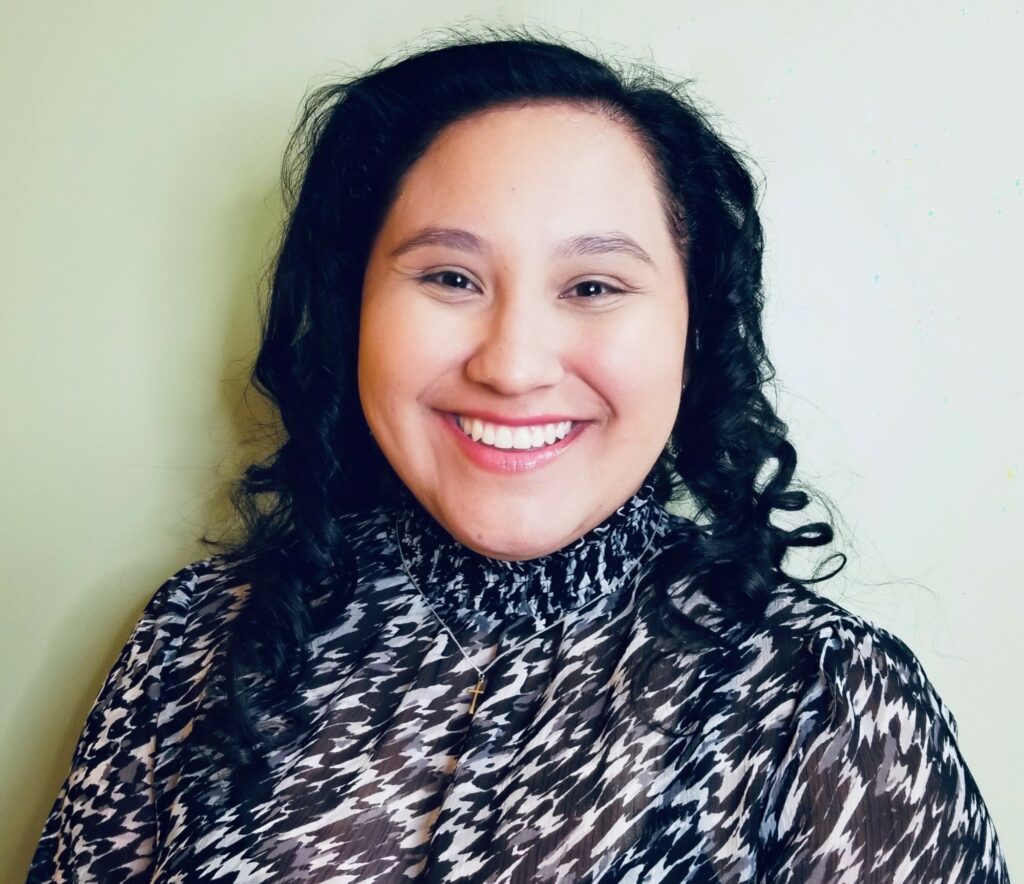
Download the article (pdf) Table of Contents Healthcare professionals working in a hospital setting must respond to a variety of stressful situations while on the job. Aside from patient care, they must be ready to respond to emergency situations and act in the best interests of the hospital and their patients. Employed healthcare workers have […]
A Miracle of Modern Medicine and Mobility
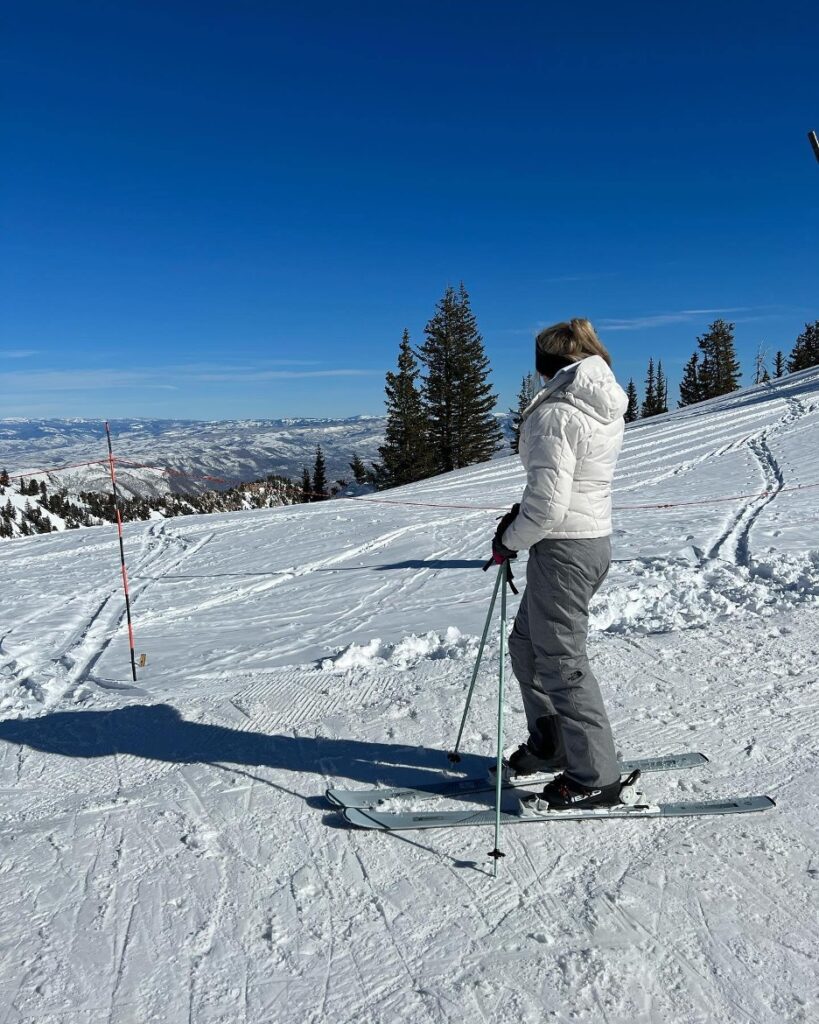
Download the article (pdf) Table of Contents Early in my career I worked very closely with a patient who many on my ICU team said was a “once-in-a-career type of patient.” In working with her I not only learned about her condition and complicated care, but about myself as a clinician and human being. The […]
50th Anniversary of the Rehabilitation Act of 1973, with Mark Johnson
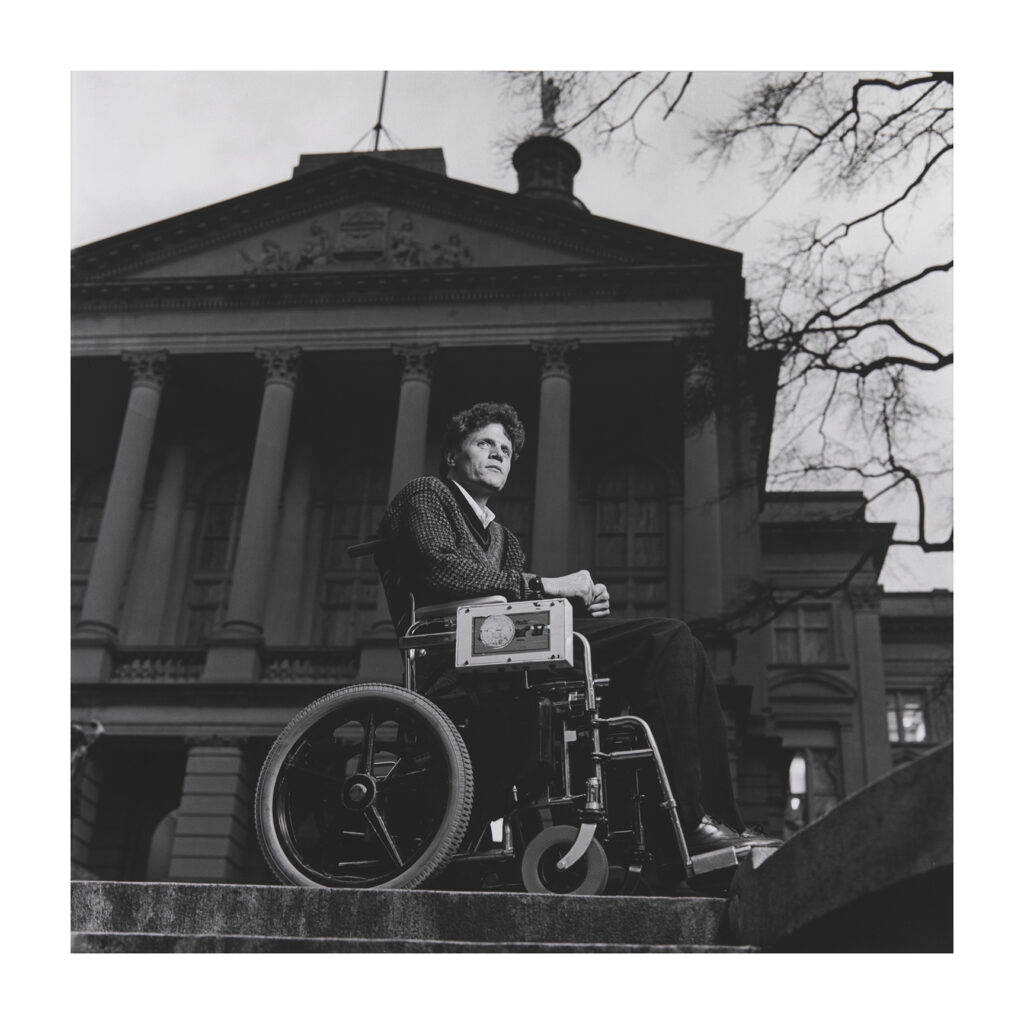
Download the article (pdf) Table of Contents Photo of Mark Johnson (1995) by Billy Howard from the book Portrait of Spirit: One Story at a Time by Maggie Holtzberg and Billy Howard Mark Johnson is a well-known advocate and leader in the movement for disability rights. As a devoted community organizer, he is committed to […]
Living the Hard Times Out Loud
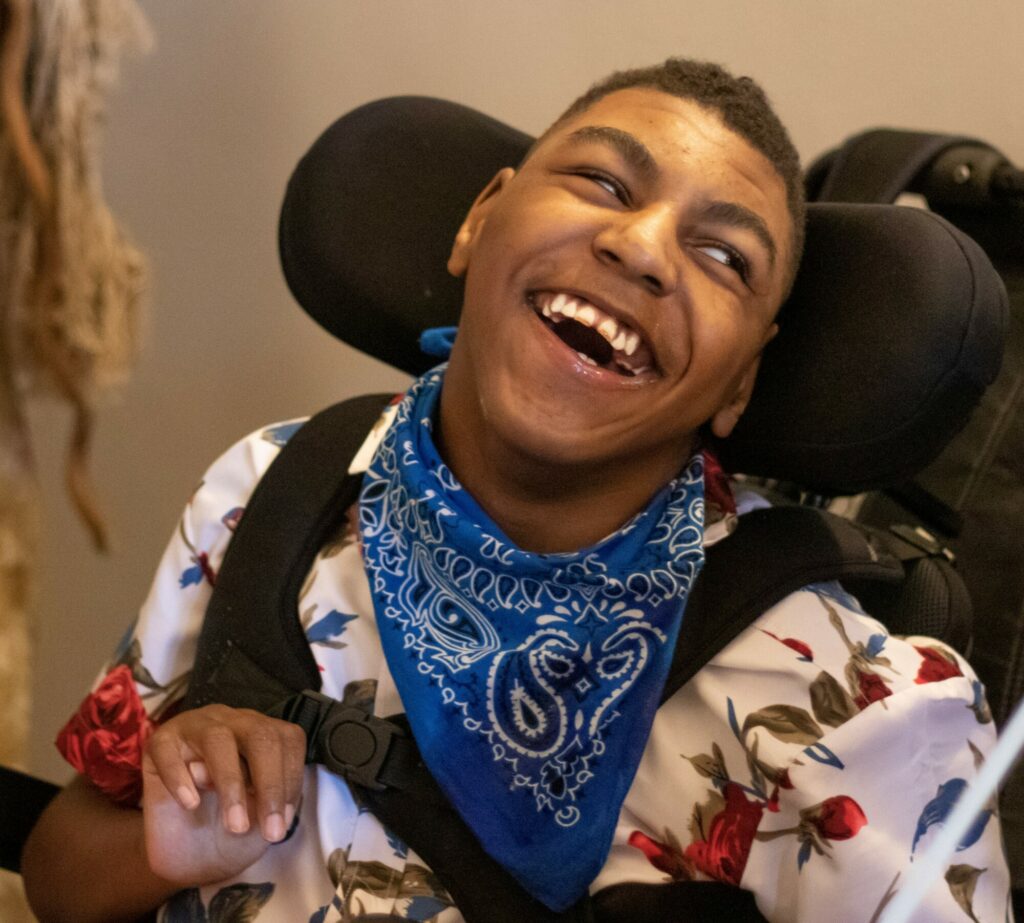
This beautiful poem by “a mother on a mission to help families and caregivers navigate life with differently-abled kids” presents the powerful story of Noah Williams. Noah lives an extraordinary life as an artist, athlete, and public speaker, as he deals daily with cerebral palsy, epilepsy, and visual impairment. As Naomi’s words flow through the poem, they detail his lifelong struggle, and the love of people who join in his joy of living and help him navigate his days. “The best that is in him keeps unfolding into the spaces so many help open and hold.”
How Structural Oppression Has Shaped the Physical Therapy Profession and Access to Rehabilitative Services
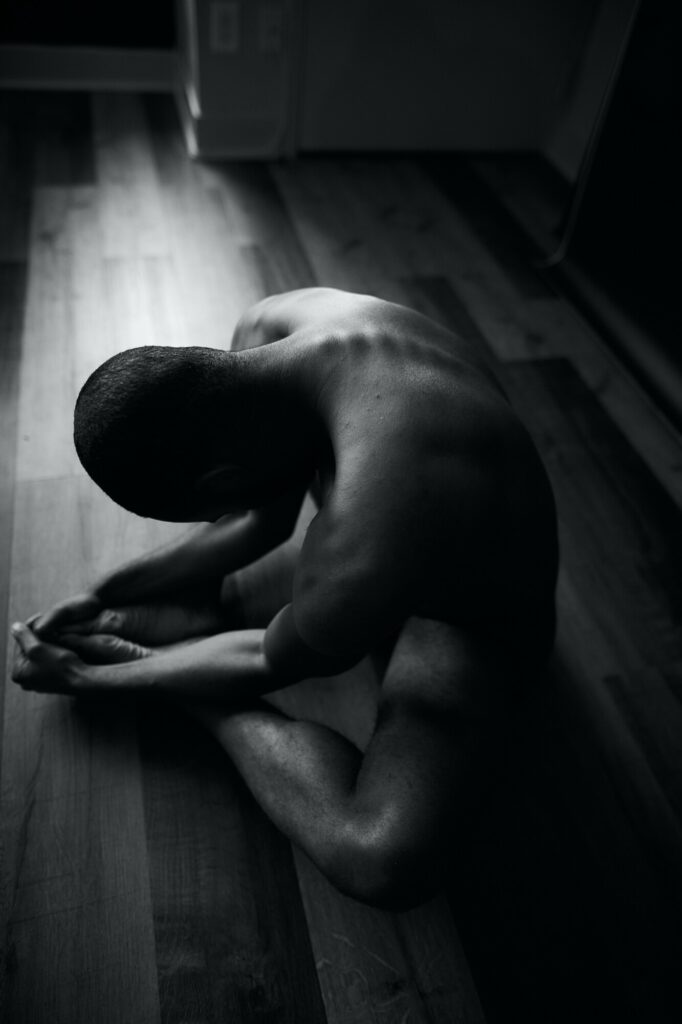
Physical therapy has been practiced in the US for more than 100 years. But have rehabilitative services been the same for all Americans? These authors show how Black, Brown, and Indigenous People have not fully reaped the rewards of this, or any, aspect of the US healthcare system. They state that the nation’s “structural racism” continues to shape “exclusion of racialized persons from all levels of physical therapy.” They offer this article as a “first step in better understanding this history”—and in finding real solutions.
Towards a Global Knowledge Creation Strategy: Learning From Community-Based Rehabilitation

Community-based rehabilitation has been growing worldwide, in efforts to improve the lives of persons with disabilities within their own communities. This Perspective sheds light on the global development of CBR—and demonstrates the differences in rehabilitation research and practices between high-income countries and low-to-middle income countries. To reach all people in need, the authors suggest opportunities for “national collaboration to integrate knowledge between countries regardless of income categorization.”
Horace Pippin: Art, War, and Rehabilitation
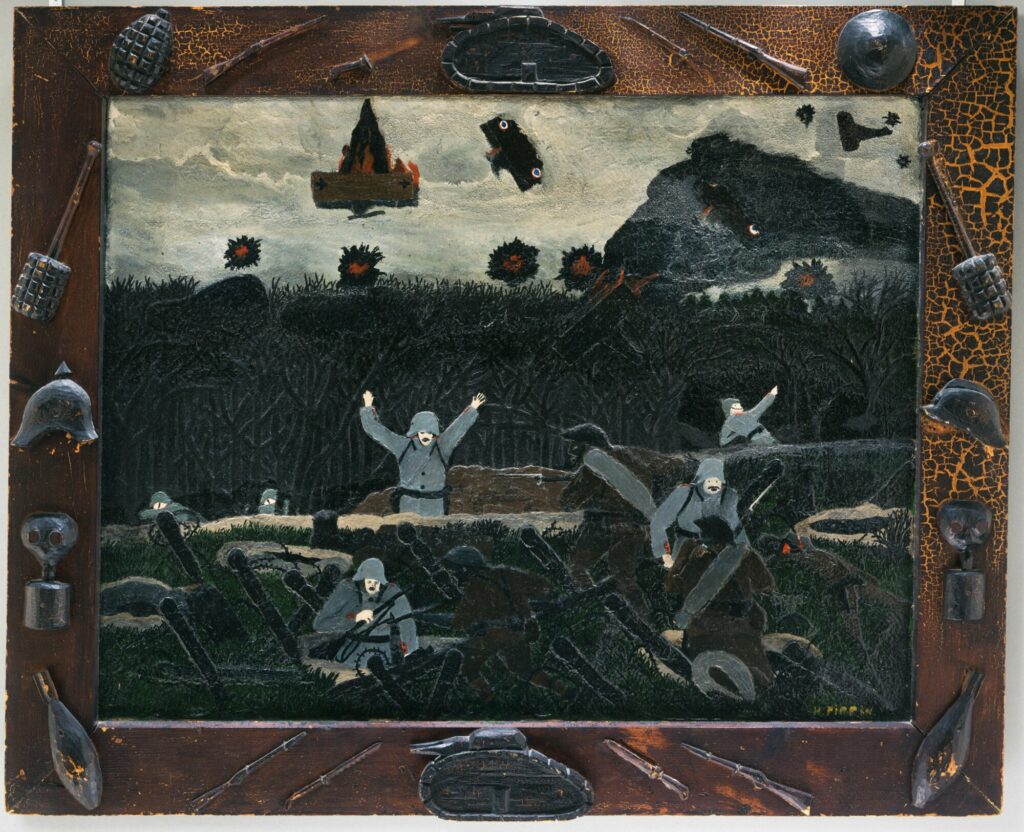
Download the article (pdf) Table of Contents Introduction Horace Pippin began creating art as a hobby in his childhood; this practice later served as an important force in both his physical and mental-health rehabilitation. This article discusses how Pippin’s paintings reflect a range of his experiences and demonstrate the power of art as a form […]
Profiles in Professionalism With Susan S. Deusinger

Download the article (pdf) Introduction The Profiles in Professionalism series featured in the Journal of Humanities in Rehabilitation seeks to explore the elusive yet crucial concept of professionalism and its role in the field of rehabilitation medicine. Providing insight through the words of visionary leaders, we seek to reflect on what it means to be […]
“The Hat”

Download the article (pdf) Table of Contents My husband was so strong, athletic, caring. I fell in love with him when I witnessed how gently and lovingly he cared for clients at a residential facility. We ran races together, finished a marathon, cycled, enjoyed life, and eventually adopted our daughter from Ukraine. A year later, […]

